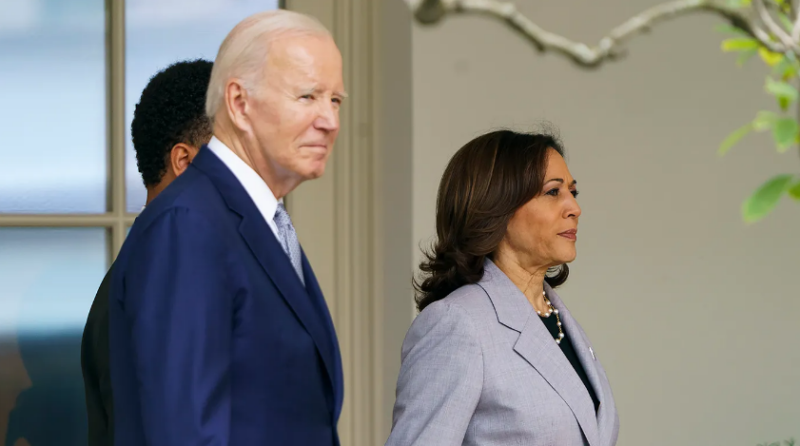Sounds Like Kamala Got Thrown Out Of Big White House Meeting
Let’s get into the latest developments in the ongoing and increasingly tense situation in the Middle East. President Joe Biden and Vice President Kamala Harris are set to meet with national security officials in the White House Situation Room today. The meeting comes at a critical time, as Iran has reiterated its intention to retaliate against Israel following the assassination of Ismail Haniyeh, a top Hamas political leader, in Tehran.
Although Israel hasn’t officially acknowledged responsibility for the strike, Iran’s Supreme Leader Ayatollah Ali Khamenei has vowed to seek revenge. This escalation has everyone on high alert, with concerns that the conflict could spiral into a broader regional war. Secretary of State Antony Blinken has reportedly warned leaders from the Group of Seven (G7) that attacks from Iran and its ally, the Hezbollah militant group, could happen as early as today.
In response, G7 members have been reaching out to Iran, urging restraint to avoid an all-out war. According to sources cited by Bloomberg, these efforts aim to prevent a regional conflict from erupting, which would have severe implications not just for the Middle East, but for global stability as well.
SHOCK: Kamala Harris was dismissed early from the situation room. pic.twitter.com/jTON07Y4Ob
— @amuse (@amuse) August 5, 2024
Iran’s foreign ministry has stated that while the country doesn’t want to escalate tensions further, it believes it has the right to punish Israel under international law. The ministry emphasized that maintaining stability and security in the region would require creating deterrence against what it called Israel’s “adventurism.”
This latest development follows a particularly bloody period in the region. Just last week, Israel killed Fuad Shukr, a top military leader of Hezbollah in Lebanon, further inflaming an already volatile situation. Experts warn that these back-to-back assassinations are likely to escalate tensions even more, coming just months after Iran launched a massive missile and drone attack on Israel in April.
While some experts believe that Iran may not have the resources to replicate April’s large-scale assault, there’s concern that it could respond through its proxies, including Hezbollah. Israeli Prime Minister Benjamin Netanyahu has already indicated that Israel is in a “multifront war” with Iran and its allies, particularly following the surprise attack by Hamas on southern Israel in October, which resulted in the deaths of around 1,200 people and the kidnapping of hundreds more.
Israel’s ongoing military operations in Gaza have also led to significant casualties, with nearly 40,000 people killed as Netanyahu continues to pledge the elimination of the Hamas threat. At the same time, Israel has been under rocket attack from Hezbollah in Lebanon for the past 10 months, further complicating an already dire situation.
The White House, for its part, is trying to prevent the situation from boiling over. Deputy National Security Adviser Jon Finer told ABC News on Sunday that the administration is doing everything possible to avoid further escalation.

